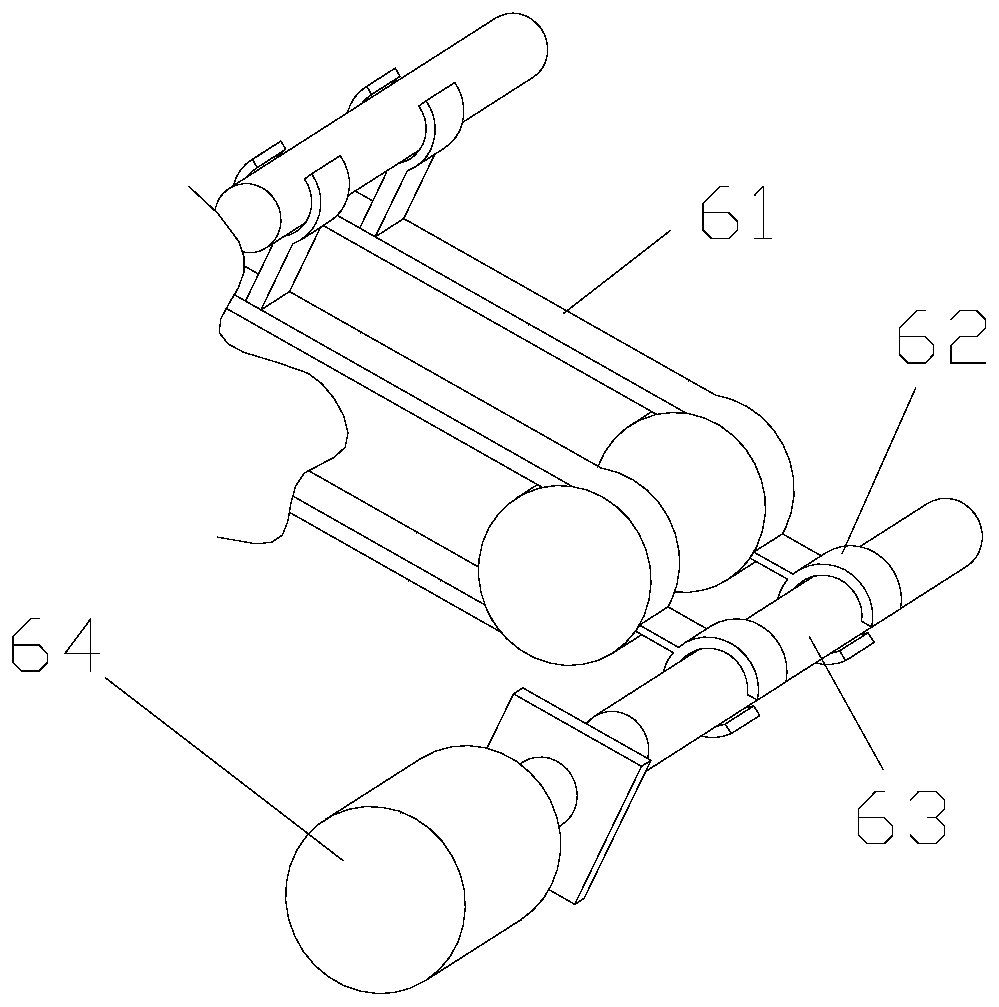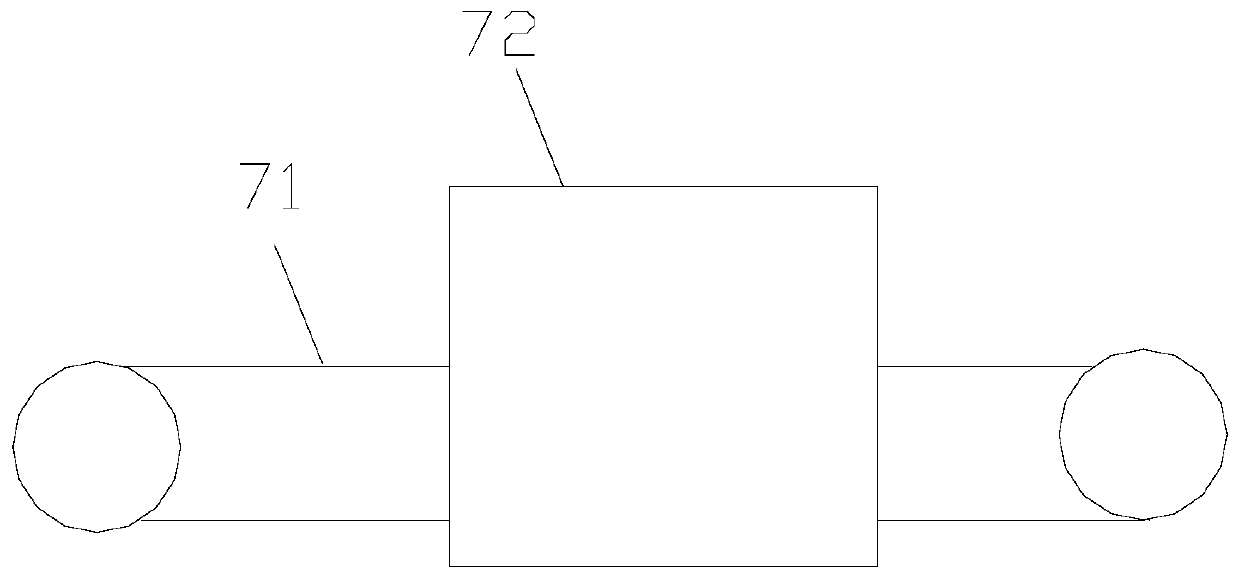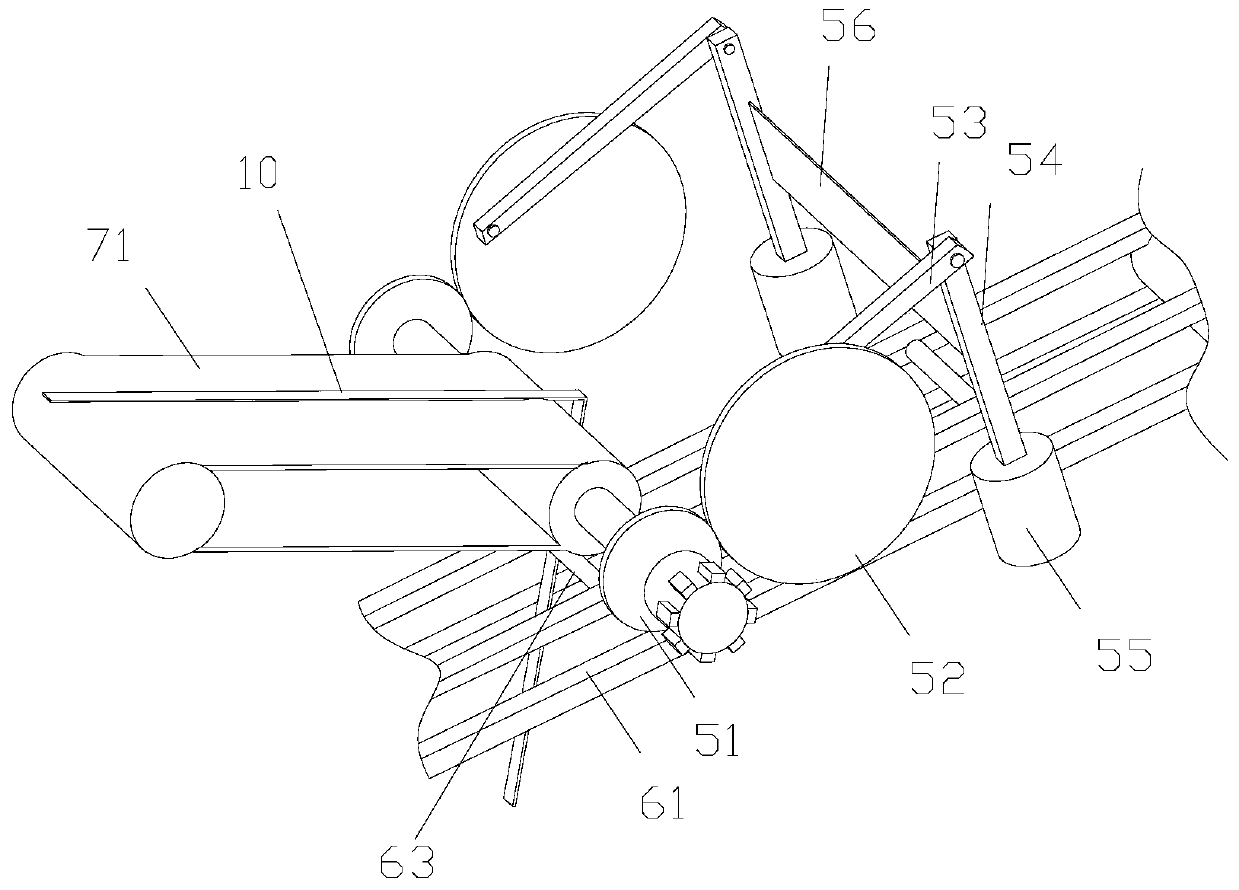Post-processing mechanism and production system for instant laminaria japonica noodles
A production system and noodle technology, applied in dough processing, dryers, food science, etc., can solve problems such as uneven drying of noodles, low work efficiency, and broken noodles, so as to optimize production flow and improve heat utilization , the effect of improving work efficiency
- Summary
- Abstract
- Description
- Claims
- Application Information
AI Technical Summary
Problems solved by technology
Method used
Image
Examples
Embodiment 1
[0052] This embodiment discloses a kelp noodle, which is made from the following raw materials in parts by weight: 60 parts of flour, 3 parts of mung bean powder, 5 parts of kelp, 2 parts of yam powder, 2 parts of minced fish meat, 3 parts of papaya juice, and 2 parts of pork liver powder , 2 parts of light bamboo leaves, 2 parts of licorice, 0.4 parts of cellulase, 4 parts of coconut milk, 6 parts of eggs, 0.6 parts of papain, 6 parts of glucose, 3 parts of salt.
Embodiment 2
[0054] This embodiment discloses a kelp noodle, which is made from the following raw materials in parts by weight: 70 parts of flour, 7 parts of mung bean powder, 8 parts of kelp, 3 parts of yam powder, 6 parts of minced fish, 5 parts of papaya juice, and 4 parts of pork liver powder , 4 parts of bamboo leaves, 4 parts of licorice, 0.6 parts of cellulase, 6 parts of coconut milk, 14 parts of eggs, 0.8 parts of papain, 8 parts of glucose, and 7 parts of salt.
Embodiment 3
[0056] This embodiment discloses a kelp noodle made from the following raw materials in parts by weight: 65 parts of flour, 4 parts of mung bean powder, 6 parts of kelp, 3 parts of yam powder, 3 parts of minced fish, 4 parts of papaya juice, 3 parts of pork liver powder, 3 parts of bamboo leaves, 4 parts of licorice, 0.5 parts of cellulase, 5 parts of coconut milk, 8 parts of eggs, 0.7 parts of papain, 7 parts of glucose, and 6 parts of salt.
PUM
 Login to View More
Login to View More Abstract
Description
Claims
Application Information
 Login to View More
Login to View More - R&D
- Intellectual Property
- Life Sciences
- Materials
- Tech Scout
- Unparalleled Data Quality
- Higher Quality Content
- 60% Fewer Hallucinations
Browse by: Latest US Patents, China's latest patents, Technical Efficacy Thesaurus, Application Domain, Technology Topic, Popular Technical Reports.
© 2025 PatSnap. All rights reserved.Legal|Privacy policy|Modern Slavery Act Transparency Statement|Sitemap|About US| Contact US: help@patsnap.com



